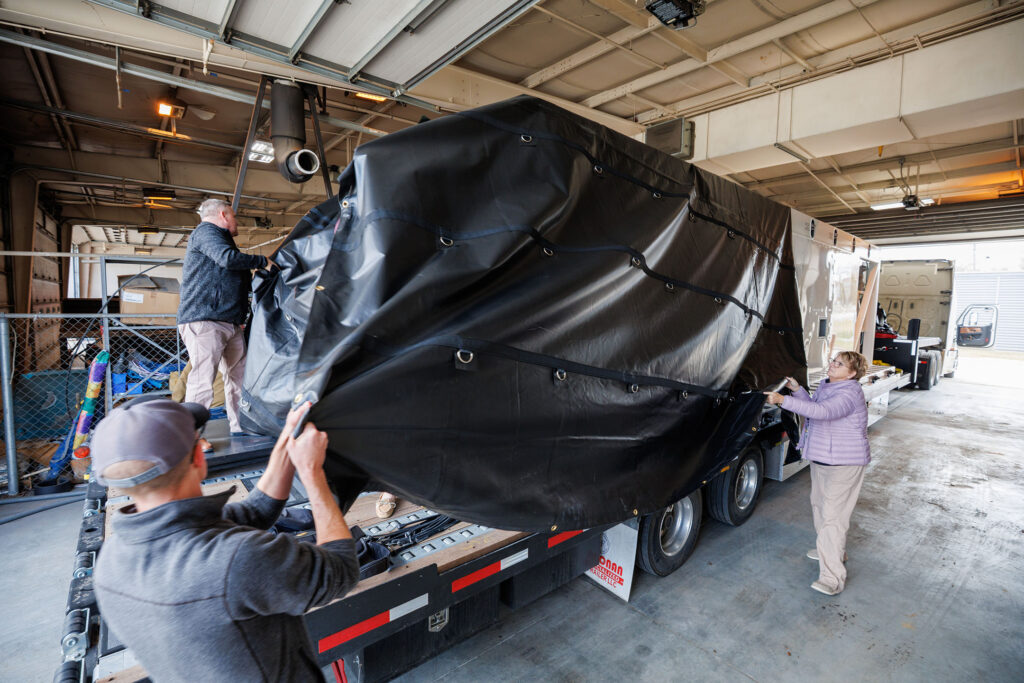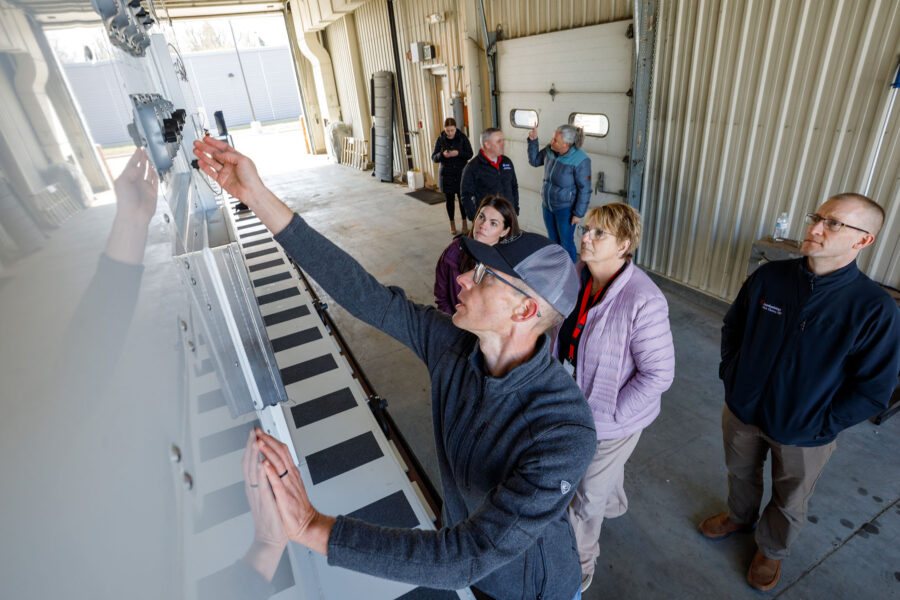In the first week of April, UNMC received delivery of the Portable Biocontainment Unit (PBCU), the first of its kind globally and to be used domestically in the fight against highly infectious diseases.
The unit, funded by the Administration for Strategic Preparedness and Response (ASPR), is designed to:
- Provide the U.S. Department of Health and Human Services with aeromedical evacuation capability for patients with high consequence infectious diseases (HCIDs).
- Allow operations on C-130 and L-100 cargo aircraft.
- Provide a full spectrum of critical care for at least two patients.
- Maintain biocontainment through a system of regulated air flow, HEPA filtration between all airspaces and cascading pressure differentials.
- Offer a dedicated support trailer for ground transportation and stationary use.
“The PBCU is the first domestic resource for isolating and transporting patients with contagious infectious diseases, for example Ebola, to Regional Emerging Special Pathogen Treatment Centers (RESPTC),” said Joseph Lamana, director of the Office of International Operations at U.S. Department of Health and Human Services’ ASPR. Nebraska Medicine and UNMC serve HHS Region 7 as the RESPTC.

The Global Center for Health Security is the premier U.S. institution for management of high-consequence infections and hazards, with clinical capabilities that include biological, chemical, burn, and radiation domains.
John Lowe, PhD, director of the medical center’s Global Center for Health Security, said the center teamed with other partners from across the country to provide input from the initial design to iterative reviews of the unit.
“This becomes yet another capability for infectious disease response that our team has helped provide for the nation,” Dr. Lowe said. “More importantly, perhaps, it’s another signal of the value of our partnerships with the federal government and with other infectious disease experts around the country.”
The Global Center for Health Security this summer will begin developing protocols and assessments of the new system, Dr. Lowe said.
“This effort represents sustained and continued development of the nation’s high-consequence infectious disease response system,” he said. “We are excited to have a role in this important work.”
“We welcome this opportunity to expand the breadth of our collaborations with ASPR,” said Chris Kratochvil, MD, UNMC vice chancellor for external relations and interim vice president for external relations at the University of Nebraska. “The Portable Biocontainment Unit work will build upon the important continuum of support provided by UNMC and Nebraska Medicine to various federal collaborators in the special pathogen response domain.”
The portable unit will equip the nation with additional capacity and accessibility for doing high consequence infectious disease transport, said Shelly Schwedhelm, associate director of emergency management and clinical operations at the Global Center for Health Security.
“UNMC and the global center are honored and well positioned to serve as a site to validate the portable containment unit and develop standard operating procedures for how to safely operate within it,” she said.

If we would need this on the western end of the state we do have an airport that can land a C-130 and I understand that there is a dedicated support trailer. Would a semi come with it or would we be responsible for procuring a semi?